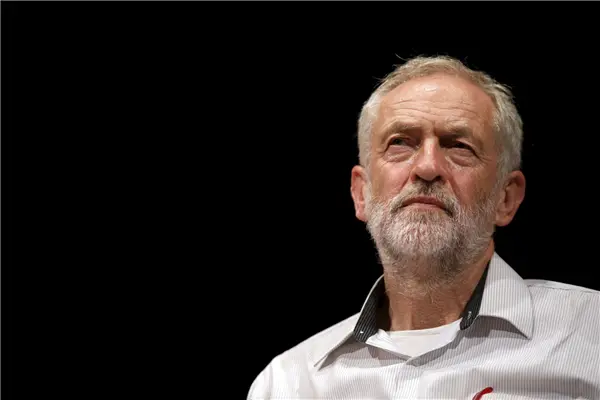In a week's time members of Britain' s Labour Party will receive ballot papers that could determine whether the party survives or disappears.
A civil war that for months has embroiled a party established in 1900 to represent working class people, will move to a new battlefield, the vote for the leadership of what is Britain's official opposition party.
Current leader, left-winger Jeremy Corbyn, faces a showdown for the top job with one of his former front bench team, the Welsh MP Owen Smith.
A survey published in the Sunday Mirror (on August 14) reveals Corbyn has nearly twice as much support among Labour voters as Smith. The poll, says the Mirror gives Corbyn a lead of 22 points, with 47 percent compared to Smith's 25 percent when Labour members were asked who would make the better leader.
The Mirror also reported Sunday that senior Labour MPs have begged the brother of former party leader Ed Miliband to quit his job in the United States and make a speedy return to challenge Corbyn's grip on the party.
Former MP David Miliband quit politics after his brother beat him to the leadership. Some even suggested David Miliband could stand in the vacant House of Commons seat created after the recent tragic murder of MP Jo Cox.
According to the Mirror, a source close to Miliband dismissed him standing in Cox's Batley and Spen constituency, but did not rule out a return to British politics, saying: "He is concerned about what's happening with Labour but his focus is in America right now."
Smith pulled no punches Sunday when he said Labour was in crisis and warned it could "disappear overnight". He said earlier he would refuse to serve in a shadow cabinet headed by Corbyn.
Smith is one of the 172 MPs who signed a vote of no confidence in Corbyn in a move that triggered the leadership challenge.
Corbyn, who won the job last September in a landslide victory, pleaded Saturday with his critics to "get on board" and take the fight to the ruling Conservative Party.
Many MPs and political commentators expect Corbyn to be declared the winner when the result is announced at Labour's annual conference in Liverpool from Sept. 24.
Since Corbyn's election the party's membership has grown to well over 500,000 making it one of the biggest political parties in Europe.
Last week Britain's High Court ruled that 130,000 new members told by Labour's NEC that they could not vote were after all entitled to vote.
The euphoria was short lived when on Friday the Appeal Court in London overturned that decision, re-imposing the voting ban. Judges said Labour's NEC was entitled to decide, under its rules, who should and shouldn't be allowed to vote.
The members who took the case to the law courts announced Sunday that they would not challenge the latest ruling in Britain' s highest court, the Supreme Court, citing the cost of prolonging legal action.
Corbyn, who would have been the likely beneficiary of most of those 130,000 extra votes, has called for the rules to be changed to ensure all members can vote in the future. He attacked the court decision.
The big problem for Labour is whether the people of Britain are ready to hand them the keys to 10 Downing Street. The latest YouGov opinion poll shows the Conservatives on 42 percent, with Labour trailing 14 points behind on 28 percent.
So could the vast majority of Labour's 230 MPs who have distanced themselves from Corbyn, set up a rival "Labour" Party in the House of Commons if the predicted Corbyn victory is confirmed?
This weekend the Economist magazine, in a commentary, said a "true Labour splinter group" could succeed where the last attempt at a breakaway group from Labour failed in 1981. That was when a group of Labour politicians formed the short-lived SDP, the Social Democratic Party.
Most of Corbyn's shadow cabinet has resigned, adds the Economist, adding: "If he wins the leadership contest he has no chance of reconstituting a full shadow ministerial line up ... he has suffered a vote of no confidence endorsed by over three-quarters of his MPs.
"Enough MPs despair of Corbyn to split off, re-found the party and annihilate its remaining, far-left rump," suggests the commentator. A new breakaway could even become the official opposition if enough MPs jumped on board.
"If Mr Corbyn wins the current leadership election Labour MPs must choose between two futures for their party: decades of infighting that may or may not generate an electable social democratic force or a painful but effective break that would immediately generate an electable social democratic force. The future is in their hands," concludes the Economist commentary.
(APD)
 简体中文
简体中文

